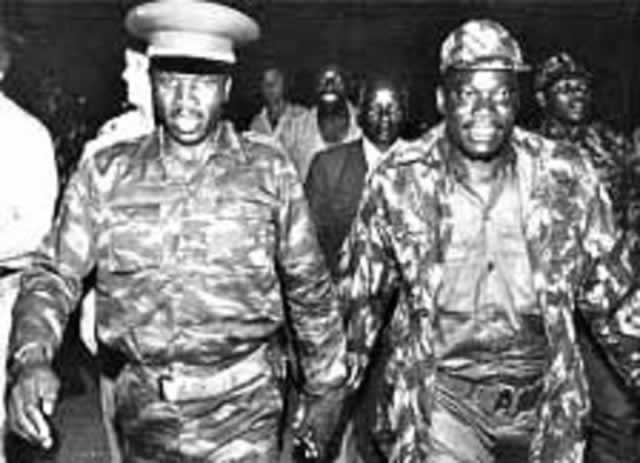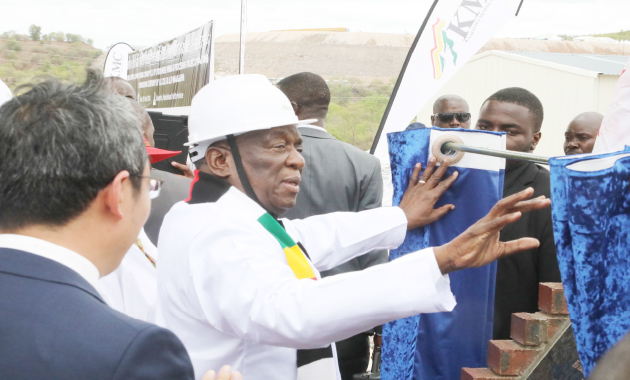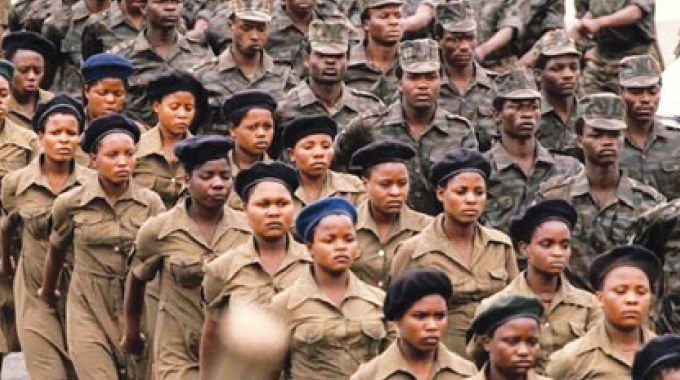Zanu-PF, Zapu must re-unite

Gatsha Mazithulela
In the military, the commander speaks and the people follow into battle. In politics, the people speak and the commander follows into negotiations.
As I have been watching political events during the festive season, I felt compelled to speak very strongly about President Mugabe’s plea to comrades in Zapu and Zanu-PF on the subject of unity. Both these organisations have an impeccable pedigree in military and political affairs and moreover, former soldiers in both organisations are now politicians. Is there something peculiar about this historical fact and the way the subject of unity and general aspirations of the people have been managed? In my understanding of how the military and politics work may be a revelation and the beginning of a solution to how political relations are structured between the masses and their leaders. What actually went wrong with the Unity Accord?
In order to ask this question properly and speculate on a possible solution, we have to first understand the pre-independence structure of liberation war movement military departments and their relations to politicians and politics in general.
Zipra and Zanla were born out of the frustration of politicians not being able to resolve the issue of the end of colonialism, racism and the lack of universal suffrage (one person one vote). This feature was repeated in all liberation movements in Africa as politicians were failing to achieve acceptable solutions to political questions of the time. So Zipra and Zanla, like all other necessary parts of liberation parties, became the means to force the obdurate politicians of the Rhodesia Front, and their means of violence, the Rhodesian Defence Forces, into their senses and bring political negotiations to an acceptable conclusion in Zimbabwe. They commanded us the people into war and we followed the orders without question. At the end of the war, there was nothing more required from military commanders, except to participate in a nation building project as politicians on behalf of us all, the long suffering population.
So all our commanders now became politicians and the goal posts or power relations should have also changed. It became time for the people to speak and the former commanders to listen. In the military arena, soldier commanders speak and the people follow into battle. In politics it is the people that speak and politicians follow into negotiations. All politicians take their orders from the people. What are the people saying?
How did we end up with some elements of the former PF-Zapu leadership being frustrated to an extent of leaving their new political home and resuscitating Zapu? Did we, the people, give that order? What on earth were we thinking if we did? If indeed they took a command from the people to leave, can those people now please ask them to go back?
I am not qualified to answer these questions and they must surely be considered by Zapu and Zanu-PF. This of course must be in private as the population expects them to use their substantial strategic minds for the betterment of Zimbabwe’s future and not perpetuate this untenable separation. “igula lochango yilona kuphela elabona okusemsamo/Chakafukidza dzimba matenga”.
The majority of the people of Zimbabwe couldn’t care less about the finer details of the Unity Accord except to say that they wanted it and their politicians led them into it. The only expectation thereafter is peace and unity for all Zimbabweans.
Yes, we the people know that in any agreement, there can be unforeseen problems. In contractual law or even constitutional issues, the provision for amendments is there for a reason. In social situations we have “indaba” for exactly that reason. In other words, there has never been an agreement whether social or political, that couldn’t be amended when the need arose. In many cases it becomes just a reaffirmation of the parties’ obligations rather than an amendment. So what is so difficult about the Unity Accord that cannot be resolved?
If it had flaws, can it not be amended to the satisfaction of all involved?
All politicians in this painful separation, as the President put it, must talk and agree on a way forward because that is what the people want. Politicians listen to the people and take their commands from the people and not the other way round.
Do the ordinary people in Zanu-PF and those in Zapu support this unproductive feud among politicians? I can tell you that they don’t. What they want is unity and peace for ever. If that is the wish, then ordinary Zapu and Zanu-PF supporters must not watch and wait for a miracle. They should ask their leaders to go into a room with specific instructions to agree on unity or risk not being let out of the room.
To the liberation era politicians: What kind of Zimbabwe do you want to leave for us? A Zimbabwe with memories of a feud? I thought we were modern politicians and not practitioners of feudalism. Do you want us, the young people, to remain squabbling forever in your various names? Ladies and gentlemen of politics, please talk and tell us the good news sooner rather than later. It is a direct order from the people to the politicians. The alternative is that you will roll in your graves as we will remain forever glorifying your current mistakes after you are gone. It does not matter who is wrong. Quit ye like men [work like men], be strong, the Bible says. This is what we expect from men and women like you.










Comments